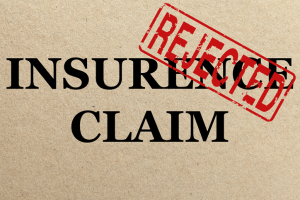Karen Beach, principal at TNMD, gives us a clearer look at psychiatric malpractice cases and how they are defended in the US and Michigan.
In Michigan, medical malpractice occurs when medical care falls below the standard of care applicable to the treatment at issue and causes injury to the patient. The standard of care is defined in each case by what a reasonable practitioner of the same medical specialty would or would not do under similar circumstances.
In a psychiatric malpractice case, therefore, the jury would determine whether the defendant did what a reasonable psychiatrist would have done under similar circumstances, and if not, whether the defendant’s actions caused injury to the patient. Both parties must retain expert witnesses who practise in the same specialty as the defendant, and those experts help the jury determine whether the standard of care was breached and whether any breach caused injury to the patient.
Medical malpractice plaintiffs can recover most of the damages available under Michigan law, although some limitations have been enacted to curb unreasonable damage awards that can drive up the cost of malpractice insurance. In general, plaintiffs can recover past and future economic damages, including medical expenses and lost wages. Plaintiffs can also recover past and future noneconomic damages, namely pain and suffering but also humiliation and mental anguish.
After the jury awards values for these damages on the verdict form, the trial court must adjust the numbers to meet certain statutory requirements. For noneconomic damages, the amounts awarded must be reduced to meet a statutory cap on noneconomic damages in medical malpractice cases. The cap amount is adjusted annually and is higher for cases involving loss of limb function, loss of mental capacity, or injury to reproductive organs resulting in the inability to procreate. For economic damages, any collateral source benefits payable from other sources (such as Social Security or unemployment benefits) must be subtracted from the same category of damages.
In general, plaintiffs can recover past and future economic damages, including medical expenses and lost wages.
Michigan also requires all future damages, economic and noneconomic, to be reduced to present value at the rate of 5% per year, compounded annually, for each year in which those damages will accrue. All of these reductions create a judgment which can be millions of dollars less than the amounts the jury awarded.
Psychiatrists are less likely to be sued than other types of physicians. Allegations of psychiatric malpractice often concern an alleged failure to properly diagnose or treat suicidal or homicidal patients (resulting in suicide, homicide or injury to other patients). One common fact pattern is a patient who dies by suicide in the days immediately following his or her release from a psychiatric facility. In those cases, plaintiffs often struggle to establish the requisite causal link between the defendants’ actions and the patient’s suicide. They must demonstrate, without relying on speculation, that the patient would not have died by suicide ‘but for’ the decision to discharge the patient.
Depending on how remote in time the suicide is from the discharge and what other intervening factors may have affected the patient’s mental status, causation can be difficult to prove. This ‘but for’ causation standard applies in all medical malpractice cases, and defendants frequently file dispositive motions asserting that the plaintiff cannot meet that standard.
Michigan has a statute, MCL 330.1946, imposing a duty upon psychiatrists and other mental health professionals to take action upon learning a patient has the apparent intent and ability to physically harm a reasonably identifiable third party. The duty can be discharged by hospitalising the patient or warning the third party or the police about the threat. A psychiatrist who complies with the statute does not violate Michigan’s physician-patient privilege. However, a psychiatrist who otherwise discloses privileged communications or information without the patient’s authorisation can be sued for malpractice for breaching his or her duty of confidentiality. Where there is no clear statutory authorisation for breaching patient confidentiality, a psychiatrist opens himself or herself up to liability by disclosing confidential information, even if it is done to protect the patient, protect the public, or comply with a request from a court or governmental entity.
Psychiatrists are less likely to be sued than other types of physicians.
Another common allegation of malpractice against psychiatrists is that the psychiatrist engaged in an inappropriate relationship or conduct with the patient. Where liability is contested, the case often devolves into a credibility contest between the psychiatrist and the patient. Where liability is admitted or proven, the issue becomes whether additional recovery is available from the psychiatrist’s employer based on a failure to supervise or act on knowledge that an inappropriate relationship was occurring. The availability of insurance coverage for any damages can also be an issue, as many policies contain exclusions for sexual misconduct.
Litigating a psychiatric malpractice case involves a discovery process different from other types of medical malpractice. Unlike a medical diagnosis that is based on symptoms, pathology or imaging, the diagnosis of a psychiatric illness is more nuanced and, arguably, more subjective. Although the DSM attempts to set standards and parameters for diagnosis and treatment of various psychiatric conditions, not all of its criteria are evidence-based and categories of diagnosis are disputed among the medical community. All of this uncertainty and subjectivity means that the depositions of the parties and their experts are frequently much longer than in other kinds of medical malpractice cases.
In addition to malpractice claims, psychiatrists can also be forced to defend licensing complaints and investigations by state medical boards. Licensing actions involve a process, burden of proof and penalties that are different from a malpractice action. It is important to make sure a defence attorney has experience defending a licensing action in addition to malpractice actions.
Licensing actions involve a state investigation into a potential violation of the Michigan Public Health Code, or a potential ground for disciplinary action by the state Board of Medicine. In Michigan, anyone can submit an allegation that a licensed health professional has violated the Public Health Code. Common allegations include poor quality of care, treatment outside of the professional’s scope of practice and billing for services not rendered. Investigations can also be triggered by reported malpractice settlements, awards or judgments (three or more in a five-year period or any number totaling more than $200,000 in a five-year period), failure to meet continuing medical education requirements, failure to timely renew a professional license, failure to report a criminal conviction, or other technical violations of the Code.
Unlike a medical diagnosis that is based on symptoms, pathology or imaging, the diagnosis of a psychiatric illness is more nuanced and, arguably, more subjective.
An investigation begins when the Bureau of Health Professional Licensing within the Michigan Department of Licensing and Regulatory Affairs (LARA) refers an allegation to the health professional’s governing board. If the Board determines that an investigation is warranted, then LARA will send a letter stating that the professional is the subject of an investigation regarding a possible violation of the Public Health Code. This vague letter should prompt its recipient to retain an attorney, who can then contact the LARA investigator and schedule an in-person meeting to discuss the allegations at issue and what documentation or other evidence may be requested. Investigators are not neutral factfinders; they are charged with finding violations of the Public Health Code.
The professional and his or her attorney may choose to produce medical records. The physician-patient privilege does not apply to a LARA investigation, nor do HIPAA protections apply to otherwise protected health information. In addition to the medical records and any other proffered evidence, the investigator may consult an expert to render a professional opinion regarding whether or not the professional violated the applicable standard of care or otherwise violated the Public Health Code. The investigator will produce a written report for use by the State Board of Medicine in determining whether or not the professional violated the Public Health Code. This process typically takes 4-6 months.
If a favourable decision is rendered, the investigation is over. If the Board instead decides that a violation occurred, then LARA will file an administrative complaint, which must be answered within 30 days. If LARA believes that the professional poses a current threat to public health, safety or welfare, a summary suspension of the professional’s license may also be issued. The professional will then have an opportunity to meet with a representative of the Board to negotiate a settlement or to present evidence that the professional did comply with the Public Health Code.
If the complaint is not dismissed or a settlement is not reached, an administrative law judge will hold a hearing on the complaint. The professional can present evidence and call witnesses and retained experts in his or her favour. The administrative law judge will provide a proposed written decision with findings of fact and conclusions of law to the Board, to which either party can file exceptions. The Board’s Disciplinary Subcommittee will then decide whether to accept the decision and impose sanctions if warranted. Sanctions against a license can include suspension, revocation, probation, reprimand or fines. The Board’s decision can be appealed to the Michigan Court of Appeals.
The physician-patient privilege does not apply to a LARA investigation, nor do HIPAA protections apply to otherwise protected health information.
If the decision becomes final, it is reported to the National Practitioner Data Bank and becomes part of the professional’s permanent licensing record. Discipline can also have serious consequences for the professional’s ability to practise in hospital systems, obtain malpractice insurance, and participate in public and private insurance systems.
About Karen Beach
I enjoyed reading and writing from an early age, but did not consider practising law until college. I had the opportunity to work at a regional law firm in Huntington, West Virginia while attending Marshall University to study History and Spanish. Law seemed like a natural fit for my interest in researching, developing and supporting arguments and ideas.
Attending law school at Duke University, I was drawn towards appellate practice because of its emphasis on research and writing. I liked the process of weaving various cases and statutory interpretations into a cohesive argument in support of my position, and also preparing counterattacks to the best points of the opposing view. I enjoyed interacting with the judges at oral argument and responding to their questions about my position. It gave me a sense of performing that I had been missing from the days when I had time to do vocal and theatre performances. In 2011, my moot court team won the American Bar Association National Appellate Advocacy Competition. That gave me confidence that I could practise appellate law as a career.
After law school, I returned home to Michigan to work at a regional defence firm in Metro Detroit. I had the good fortune of practising exclusively in appellate law from the beginning, and many of my cases were medical malpractice cases. After ten years of general civil defence work, I had the opportunity to take a position as head of the appellate department at TNMD, which is largest exclusive medical malpractice defence firm in Michigan. I come from a family of medical providers – my grandfather was chief of the urology department at Henry Ford Hospital in Detroit, my mother and brother are nurse anesthetists, and my sister is a physician assistant. I have always held medical professionals in high esteem, and being able to defend them gives me great personal satisfaction.
[ymal]
I enjoy the complexity of medical malpractice law, both the medicine itself as well as the numerous statutes and lines of case law that specifically focus on medical malpractice. Working at a large medical malpractice defence firm keeps me constantly learning new areas of medicine. Sometimes, this knowledge helps me to be a more informed patient myself. As the appellate lead, I have the opportunity to work with all of the other attorneys in the firm on the difficult strategic issues and legal questions affecting their cases. It is very gratifying to help them win an important motion or to get a certain ruling overturned on appeal.
I also appreciate the collegiality of the appellate bench and bar. Appellate lawyers spend their time trying to persuade judges, not fighting with one another over discovery disputes. We rarely see one another or our clients except in court, which makes for a somewhat lonely but very flexible practice. My favourite part of appellate practice might be the fact that there is almost always a winner and a loser once a case goes on appeal, as cases rarely settle. Win or lose, I am proud to defend Michigan’s healthcare providers in court so that they can focus on the tireless and important work they do caring for us all.
Karen E Beach, Principal
Tanoury, Nauts, McKinney & Dwaihy, PLLC
38777 Six Mile Road, Suite 101, Livonia, MI 48152, USA
Tel: +1 313-964-4500 | +1 313-465-8901
Fax: +1 734-469-4298
E: Karen.Beach@tnmglaw.com
Karen Beach has litigated nearly 100 appeals in Michigan’s state and federal courts, including the Michigan Court of Appeals, the Michigan Supreme Court and the United States Court of Appeals for the Sixth Circuit. She handles internal appeals from TNMD’s team of trial lawyers as well as appeals from clients seeking a dedicated appellate attorney to prosecute or defend their appeals. She has been recognised as a top appellate lawyer and rising star by SuperLawyers, DBusiness Magazine, Hour Detroit, Leading Lawyer and other publications. She is a member of the Michigan Supreme Court Advocates’ Guild and the state co-chair of the American Bar Association’s Council of Appellate Lawyers.
Tanoury, Nauts, McKinney & Dwaihy (TNMD) is the largest firm in Michigan dedicated exclusively to defending medical malpractice claims. TNMD’s lawyers have experience defending claims involving every type of medical specialty and practice area, including hospital care, nursing homes, and private practice.





















